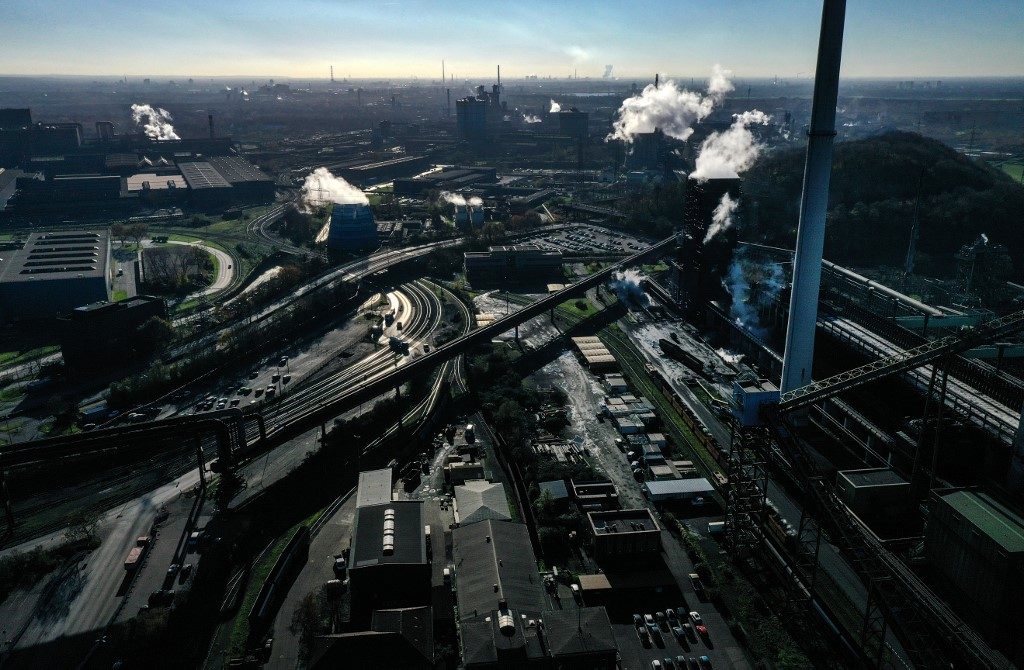SUMMARY
This is AI generated summarization, which may have errors. For context, always refer to the full article.

German industrial orders beat forecasts in October, topping their pre-pandemic level for the first time since the start of the coronavirus crisis, official data showed Friday, December 4.
New contracts were 0.8% higher than their level in February 2020, before the virus swept across Europe, after October brought month-on-month growth of 2.9%, federal statistics agency Destatis said.
Industrial orders are widely tracked as a key indicator of future activity, especially in manufacturing powerhouse Germany.
The October pickup was almost 3 times faster than September’s revised monthly increase of 1.1%, and beat expectations for a 1.3% rise from analysts surveyed by FactSet.
“In recent months, demand for industrial goods has continued to pick up, both from Germany and abroad,” the economy ministry said in a statement.
This is “good news,” said LBBW economist Jens-Oliver Niklasch, noting that “foreign orders in particular have picked up.”
Orders from inside Germany rose by 2.4% over one month, compared with 0.5% for those from the eurozone and 4.8% for the rest of the world.
The automotive industry, the engine of the German economy, saw orders add 1%, reaching levels 6% above February 2020.
And overall orders also outperformed October 2019 by 1.8%, the ministry said – although the economy had been performing sluggishly a year ago.
Germany’s economy expanded by a record 8.5% in the 3rd quarter of 2020 as restrictions were lifted and shops and factories reopened.
But a decline in economic output may be on the cards for the last 3 months of the year.
“The economic weakness caused by the pandemic is more or less all related to the service sector,” Niklasch said, adding “this is unlikely to change in the near future.”
Lockdowns announced by Chancellor Angela Merkel for November to curb Germany’s second wave have likely hit demand again. – Rappler.com
Add a comment
How does this make you feel?


![[Time Trowel] Evolution and the sneakiness of COVID](https://www.rappler.com/tachyon/2024/02/tl-evolution-covid.jpg?resize=257%2C257&crop=455px%2C0px%2C1080px%2C1080px)







There are no comments yet. Add your comment to start the conversation.